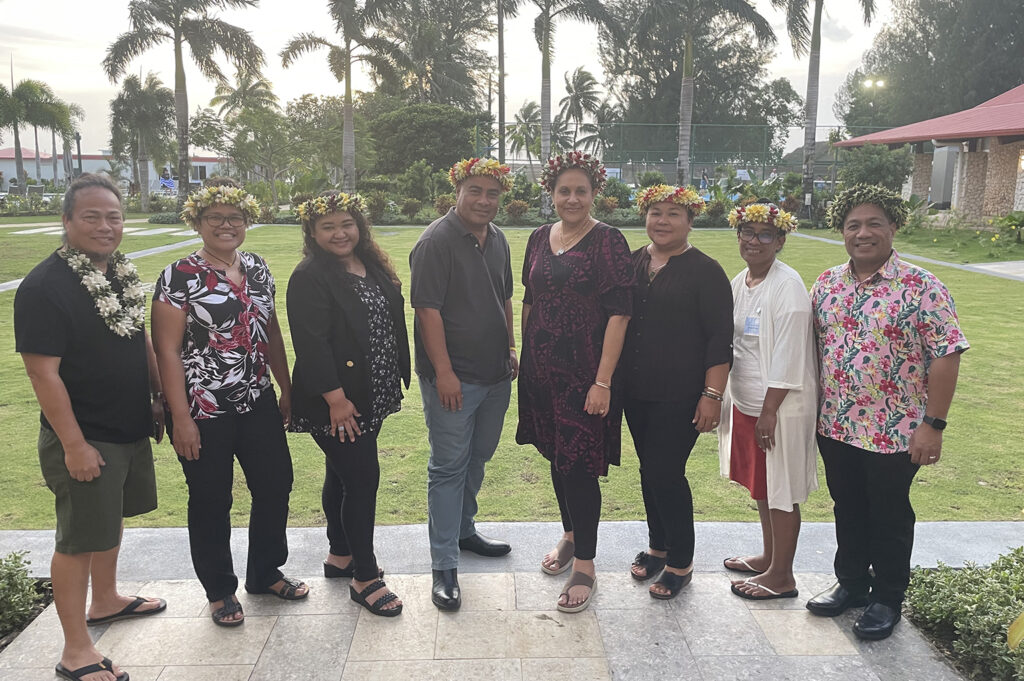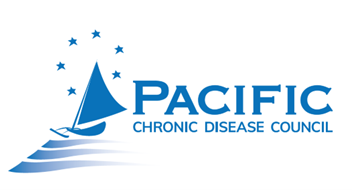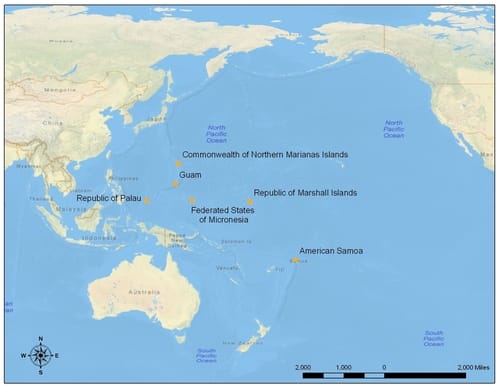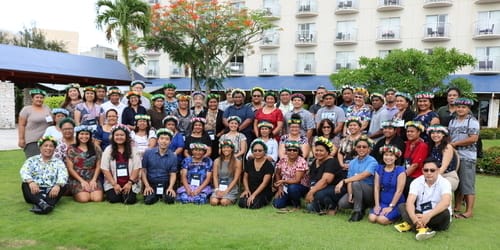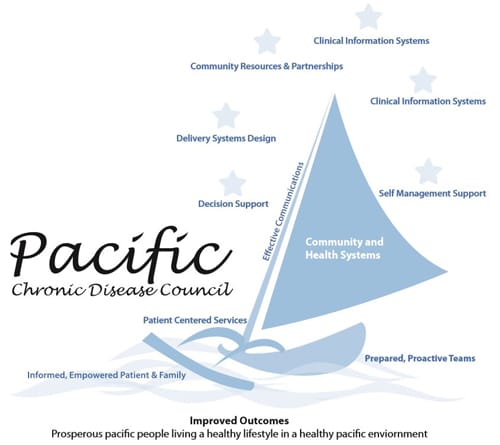Each star navigates the changes needed in community and health systems to create effective communication (represented by the canoe mast) between informed, activated patients and families and a prepared, proactive healthcare team – which lead to patient- and family-centered services and improvements in health outcomes.
The Pacific NCD Collaborative is built on a participatory process that promotes co-learning and facilitates collaborative and equitable partnerships, building the skills and strengths of local leadership responsible for health.
Non-Communicable disease death rates continue to rise among the Pacific people along with increasing numbers of diabetes related complications such as amputations and kidney failure.
We must find ways to bend the curve and decrease the numbers. I commend the Non-Communicable Disease Collaborative, as it helps us share lessons learned and strengthen action with government ministries, healthcare systems, and community-based partners across the region.
Honorable Kalani Kaneko, Minister of Health, Republic of the Marshall Islands
